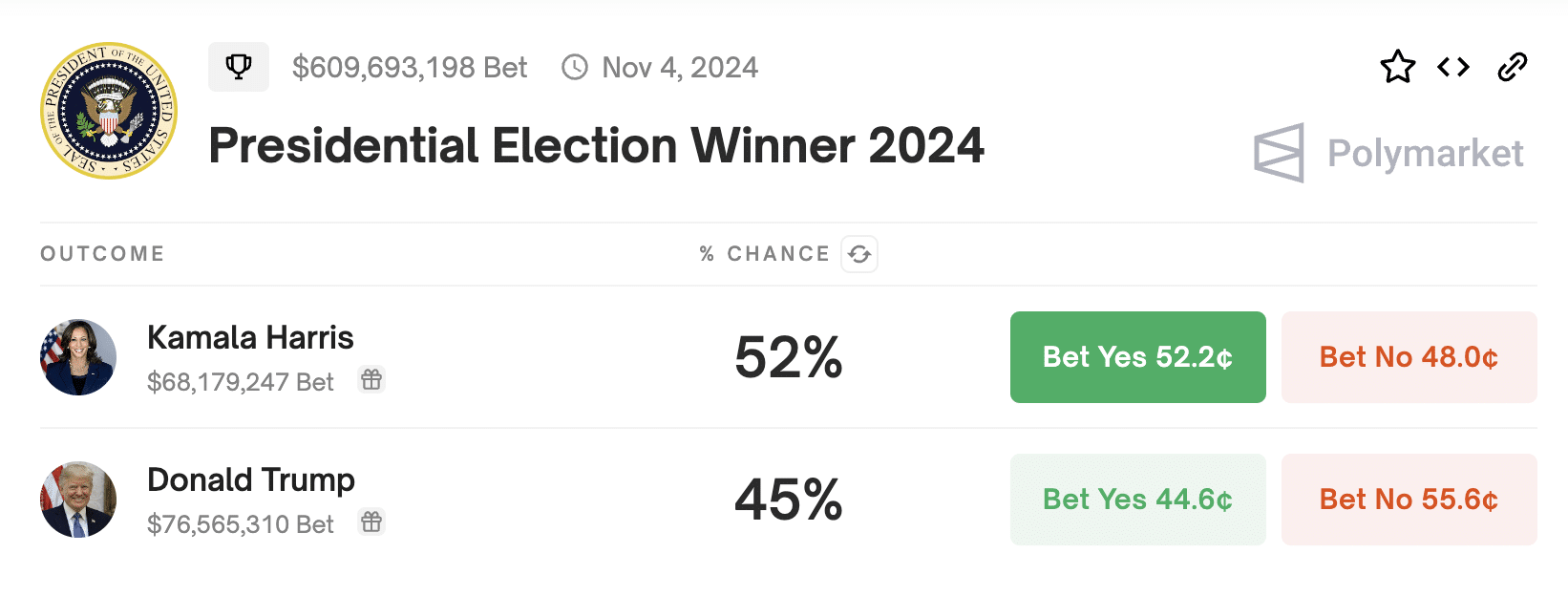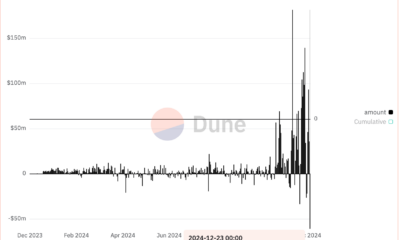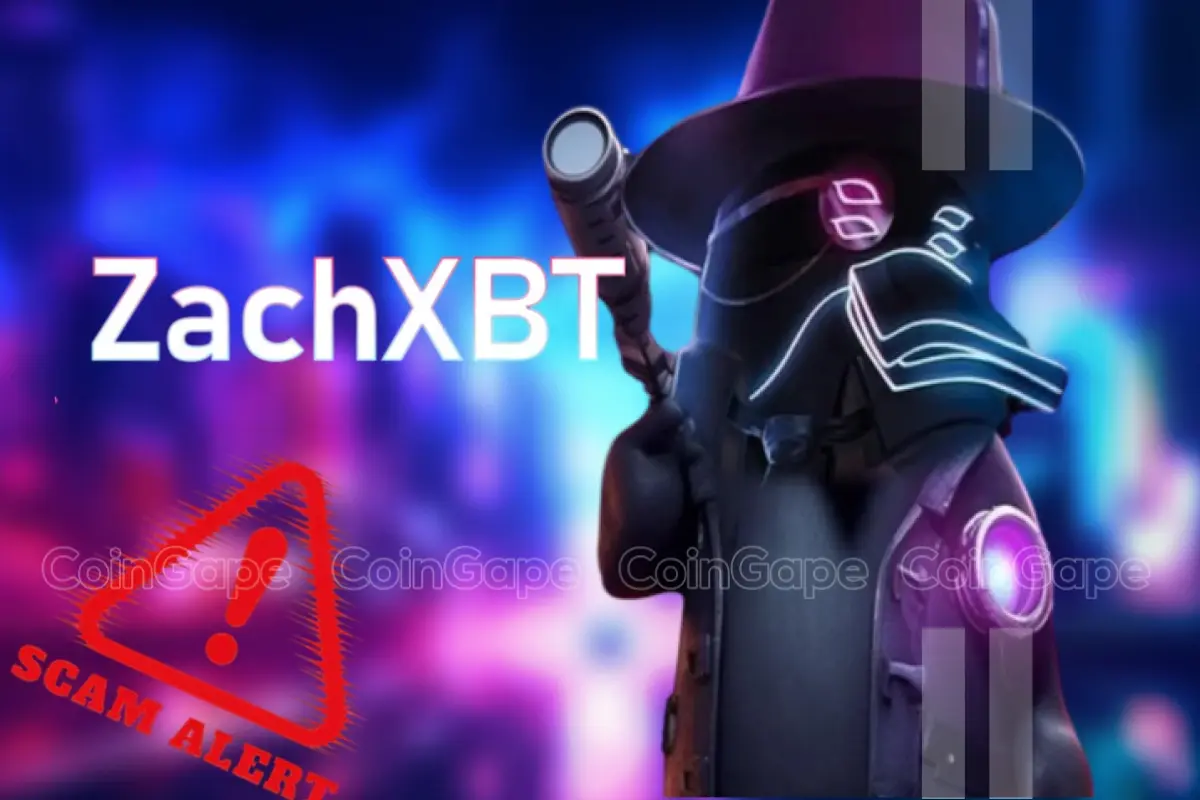Crypto scam
How crypto bloggers may suffer
Published
4 months agoon
By
admin
The U.S. Federal Trade Commission has banned fake reviews and recommendations. What does it mean for crypto?
According to the latest news, the decision introduces financial and administrative restrictions on individuals who “sell or buy fake social media influencer indicators.”
The FTC leadership unanimously supported the introduction of the new rules. They will take effect 60 days after publication in the Federal Register:
Fake reviews not only waste people’s time and money, but pollute the marketplace and divert business away from honest competitors.
Lina M. Khan, FTC chair
The new policy also applies to crypto influencers. With the release of the latest ban, unfair methods to boost a channel or page on a social network will lead to fines and sanctions from the authorities. The FTC will also prohibit using tools that use artificial intelligence technologies for such purposes.
At the same time, the ban only applies to cases where the account owner specifically ordered or otherwise facilitated such a service. The rules also mention that fines will be imposed if the mentioned methods are used to obtain benefits for commercial purposes.
Recently, the FTC has noted a sharp increase in social media investment scams, especially in cryptocurrency. These include fake messages promising guaranteed high returns with little or no risk.
FTC consumer education specialist Andrew Raio noted that scammers are increasingly targeting social media users on major platforms with fraudulent investment opportunities, especially crypto:
If you reply, the scammer will say they’ve made lots of money investing in Bitcoin or another cryptocurrency. And they can get you a unique opportunity that guarantees significant returns with little or no risk. But these are all lies designed to convince you and get your money.
The victim is redirected to a fake investment site or app where their investment account looks profitable. However, once the scammer has squeezed out as much money as possible, they disappear, leaving the victim with nothing.
Crypto romance scams
The FTC has also warned about cryptocurrency scammers offering investment advice under the guise of romantic partners.
The regulator noted that scammers build an emotional connection with you, making you more likely to believe they are experts in investing in cryptocurrency.
The scam usually begins with an unsolicited social media contact. The scammer carefully studies the victim’s profile to establish trust and a connection. Once a relationship is established, the conversation turns to investments, with the scammer claiming their top priority is the victim’s financial security.
More restrictions for the crypto sphere are coming
In addition to crypto influencers, betting platforms have previously come under the scrutiny of the U.S. authorities.
Earlier in August, the U.S. Congress called on the Commodity Futures Trading Commission to ban political bets. Authorities noted that they could influence the outcome of the U.S. presidential election.
Five senators and three members of the House of Representatives sent an open letter to CFTC Chairman Rostin Benham. They stated that such mechanisms could undermine public confidence in the electoral system.
The initiative is also aimed at the Polymarket betting platform, where crypto community members guess the presidential election’s outcome. According to the latest data, the bet volume has exceeded $606 million. Vice President Kamala Harris is in the lead — users estimate her chances of winning at 53%, and 44% of people who placed a bet believe in former President Donald Trump’s triumph.

At the same time, the total political section on the platform in terms of funds exceeds $1 billion. Polymarket participants bet on hundreds of events.
U.S. politicians have suddenly fallen in love with cryptocurrencies
Despite the statements of individual regulators and government officials, politicians have also increased their interest in cryptocurrencies in the run-up to the presidential elections. In particular, Trump, who in 2018 instructed the U.S. Treasury to end Bitcoin (BTC), and in 2021, called it a fraud and asked for regulating the industry.
Although the Democrats have not explicitly stated their support for digital assets, they have not recently called for increased regulation or a ban. In addition, with the approval from above, the Securities and Exchange Commission would have approved even one of the documents required to list the Ethereum ETF.
Therefore, it is evident that American politicians have taken a course on a loyal attitude towards cryptocurrency.
Source link
You may like


Most Layer 2 solutions are still struggling with scalability


Here’s why Stellar Price Could Go Parabolic Soon


Perp-Focused HyperLiquid Experiences Record $60M in USDC Net Outflows


Experts say these 3 altcoins will rally 3,000% soon, and XRP isn’t one of them


Robert Kiyosaki Hints At Economic Depression Ahead, What It Means For BTC?


BNB Steadies Above Support: Will Bullish Momentum Return?
Blockchain
Crypto fakes on X nearly doubled, reaching over 300 accounts daily
Published
2 weeks agoon
December 10, 2024By
admin

Bad actors keep ramping up crypto scams, with impersonation accounts surging to over 300 a day, according to blockchain analysts.
Crypto scams on X are once again rising fast, with major accounts hijacked to promote fake tokens. Victims have already lost millions, and experts are warning users to stay alert.
Analysts at blockchain firm Scam Sniffer warned in an X post on Dec. 10 that starting this week, daily impersonation accounts surged by 87%, jumping to over 300 compared to the November average of 160. The spike increases the risk for users as scammers continue to exploit high-profile accounts to push fraudulent schemes.
🚨 SCAM ALERT: Surge in X Impersonations 📈
Our monitoring system detected a significant increase in crypto fake accounts this week, with daily numbers reaching 300+ (vs. Nov avg. 160) 📊
⚠️ Two victims lost over $3M recently from clicking malicious links/signing transactions… pic.twitter.com/eGhG1GPX0r
— Scam Sniffer | Web3 Anti-Scam (@realScamSniffer) December 10, 2024
The analysts note that in one recent case alone, two victims lost over $3 million worth of crypto by interacting with malicious links and signing transactions linked to fake accounts. As crypto.news reported earlier, the scams are particularly prevalent on Solana (SOL), where compromised accounts, including those of major entities like Yahoo News UK, Lenovo India, and Money Control, have been used to push a scam meme coin called HACKED.
Blockchain sleuth ZachXBT, who has been tracking these scams, recently issued a warning to the crypto community, advising users to be extra cautious. “So far, it seems the scammers may have lost money, as the market cap of the HACKED token is a modest $67K, and top traders have barely made $1K,” ZachXBT noted.
The compromised X accounts appear to have been connected to the same malicious site or application. As a precaution, ZachXBT recommends that users revoke any access permissions to unfamiliar sites or apps.
The latest incident follows a series of similar scams, including the recent use of Kylian Mbappé’s account to promote a fake MBAPPE meme coin. Earlier in September, hackers also targeted family members of U.S. president-elect Donald Trump in a scam involving the fake World Liberty Financial coin.
Source link
Crypto scam
Why HAWK Memecoin Crashed from $500M to $60M in Minutes
Published
3 weeks agoon
December 5, 2024By
admin

Hailey Welch, an influencer on social media, launched her own memecoin, Hawk Tuah, on Dec. 4. The cryptocurrency crashed from $500 million to $60 million in just 20 minutes post-launch.
Hailey Welch, commonly known as the Hawk Tuah Girl on the internet, launched her new memecoin of the same name, $HAWK, on Solana on Dec. 4. The coin quickly took off, garnering a market cap of about $500 million, which then crashed to nearly $60 million, all within 20 minutes of launch. The news was further confirmed by Solana (SOL) on X.
Who is Hawk tuah girl?
Welch first rose to fame as the “Hawk tuah girl” after a video of her went viral, making a comical onomatopoeic sound of spitting took over social media earlier this year. With the meme, Welch soon progressed from working a minimum wage job to finding herself in an internet meme culture. Building on this viral moment, Welch launched the HAWK token.
Rise and fall of HAWK token
The massive drop of almost 88% in the HAWK token has reignited the discussion on the high volatility of memecoins in the cryptocurrency community. Some crypto users believe the token was initially built for rug pulling, a cryptocurrency scam in which developers withdraw liquidity or suddenly abandon a project, resulting in the token’s price plummeting.
According to content generated by the community on X, the Hawk token’s supply was allegedly “sniped” shortly after launch. This refers to instances where early investors or bots snatch up large amounts of tokens, leaving the broader community with less access and exposing them to risks. These are often warning signs of the health of the project as it shows few people own the token. However, not all holders have sold their HAWKs, as posted by a user, ZeusLFG, reflecting a strong optimism for the token.
At the time of writing, the token’s trading volume has risen exponentially by 951.67%, as per CoinMarketCap. While the debate goes on, Hawk Token remains under close observation, with members of the community demanding additional disclosures to confirm these claims and keep a close eye on this project.
Source link
24/7 Cryptocurrency News
Pro Gamer Linked to $3.5M Meme Coin Scam: ZachXBT
Published
4 weeks agoon
November 28, 2024By
admin
The crypto market has become the center of attention, with the Bitcoin price aiming at the $100k mark. However, another incident is also gaining investors’ attention these days. A famous crypto investigator, ZachXBT made a major crypto scam finding, linking a pro gamer to a $3.5M meme coin scam. More importantly, these scams were also linked to major celebrity social media account hacks, scam promotions, and much more.
At one point, the crypto industry had earned a name for itself among the biggest finance entities, with $3.31T in global market capitalization. However, the rising crypto scams, theft, and laundering are concerning. Even Changpeng Zhao showed disappointment in memecoin and the rising scams.
ZachXBT Unveils $3.5M MemeCoin Scam and the Culprit
In 2024, the crypto market faced many wallet hacks, rug pull scams, and many other concerning scams. However, celebrity account hacks and the promotion of cryptocurrency-related scams were the most frequent.
Considering the rising case, a popular crypto investigator, ZachXBT, analyzed nine celebrity account hacks and the involved meme coins. He concluded that there is a connection between all these hacks. More importantly, he claimed that a pro-Fortnite gamer known by the name Serpent is the mastermind behind this.
ZachXBT linked this pro gamer in the $3.5M meme coin scam, confirming that he used multiple Pump.Fun memecoin and pump and dump tactics to make millions. Surprisingly, the biggest connection was the Serpent’s ERROR project wallet, which interacted with every social media hacker’s wallets directly or indirectly.
1/ An investigation into how the threat actor Serpent went from a pro Fortnite player to helping steal $3.5M via meme coin scams launched from 9+ account compromises on X & IG and gambling the proceeds away at online casinos. https://t.co/zR6QtuQW8a pic.twitter.com/Y8ovnEnQgj
— ZachXBT (@zachxbt) November 27, 2024
Serpent is known as a pro gamer and blockchain security analyst. He is even the founder of the Sentinel, which is a threat mitigation system but new reports link him with the scam, making it a big controversy. More importantly, he scammed $3.5M and gambled them away in online casinos. The controversy grew as Serpent deleted many of his X posts right after ZachXBT’s claims.
Breaking Down The Serpent’s Crypto Scam
In a detailed X post, ZachXBT revealed his finding to the crypto community, which explained the memecoin scams of more than $3.5M after the scammer compromised various celebrity social media accounts. It includes the account hacks of McDonald’s, Usher, Kabosu Owner, Andy Ayrey, Wiz Khalifa, SPX 6900, etc X (Twitter) and Instagram.


McDonald’s Instagram hack was among the first hacks of the year, where the scammer promoted a memecoin called GRIMACE and earned more than $690k with the pump and dump tactics. This happened on August 21, and the person shifted the funds to two main crypto wallets. The crypto scammer transferred 101.5 SOL to two addresses on September 3 and deployed the SCHRADER token. Interestingly, this token was promoted during the Actor Dean Norris X account hack.
Further, on September 6, the scammer processed Mcdonald’s ATO to a casino deposit address with the beginning address as B2fw. This same account transferred 110 Sol to two new wallet addresses on September 12 and sniped the meme coins which was used during the Usher crypto hack. The same B2fw wallet transferred 4868 SOL to casino deposit address ECb5v, which is connected to Andy Ayrey and the Enoshima Aquarium hack on October 15. Within the same day, 84 SOLs were transferred to ECb5v.
Even the popular AI bot Truth Terminal owner’s X account got hacked on October 29, which stayed compromised for days. In that period, 6 memecoins were promoted on his account. All these involved a common 3GVUs wallet, and the same wallet transferred 169 SOL to Ecb5vs on October 30. However, this is just the mid, the list goes on for others.
Bottom Line
Meme-themed cryptocurrencies gained investors attention in 2024, where many offered heavy gains, mainly the Solana memecoins. As a result, millions of Solana-based meme tokens were launched this year on Pump. Fun, but many were misused for crypto scams. With his recent investigation, ZachXBT has revealed the person behind the $3.5M meme coins scam. The scams also involved hacking celebrity accounts and promoting tokens to boost their price and dumping them all. This way, the scammer or alleged pro-Fortnite gamer Serpent made heavy returns, but others were left with losses.
Pooja Khardia
With a deep-seated passion for reading and five years of experience in content writing, Pooja is now focused on crafting trending content about cryptocurrency market.
As a dedicated crypto journalist, Pooja is constantly seeking out trending topics and informative statistics to create compelling pieces for crypto enthusiasts. Staying abreast of the latest trends and advancements in the field is an integral part of her daily routine, fueling a commitment to delivering timely and insightful coverage
Disclaimer: The presented content may include the personal opinion of the author and is subject to market condition. Do your market research before investing in cryptocurrencies. The author or the publication does not hold any responsibility for your personal financial loss.
Source link

Most Layer 2 solutions are still struggling with scalability

Here’s why Stellar Price Could Go Parabolic Soon

Perp-Focused HyperLiquid Experiences Record $60M in USDC Net Outflows

Experts say these 3 altcoins will rally 3,000% soon, and XRP isn’t one of them

Robert Kiyosaki Hints At Economic Depression Ahead, What It Means For BTC?

BNB Steadies Above Support: Will Bullish Momentum Return?

Metaplanet makes largest Bitcoin bet, acquires nearly 620 BTC

Tron’s Justin Sun Offloads 50% ETH Holdings, Ethereum Price Crash Imminent?

Investors bet on this $0.0013 token destined to leave Cardano and Shiba Inu behind

End of Altcoin Season? Glassnode Co-Founders Warn Alts in Danger of Lagging Behind After Last Week’s Correction

Can Pi Network Price Triple Before 2024 Ends?

XRP’s $5, $10 goals are trending, but this altcoin with 7,400% potential takes the spotlight

CryptoQuant Hails Binance Reserve Amid High Leverage Trading

Trump Picks Bo Hines to Lead Presidential Crypto Council

The introduction of Hydra could see Cardano surpass Ethereum with 100,000 TPS
182267361726451435

Why Did Trump Change His Mind on Bitcoin?

Top Crypto News Headlines of The Week

New U.S. president must bring clarity to crypto regulation, analyst says

Will XRP Price Defend $0.5 Support If SEC Decides to Appeal?

Bitcoin Open-Source Development Takes The Stage In Nashville

Ethereum, Solana touch key levels as Bitcoin spikes

Bitcoin 20% Surge In 3 Weeks Teases Record-Breaking Potential

Ethereum Crash A Buying Opportunity? This Whale Thinks So

Shiba Inu Price Slips 4% as 3500% Burn Rate Surge Fails to Halt Correction

Washington financial watchdog warns of scam involving fake crypto ‘professors’

‘Hamster Kombat’ Airdrop Delayed as Pre-Market Trading for Telegram Game Expands

Citigroup Executive Steps Down To Explore Crypto
Mostbet Güvenilir Mi – Casino Bonus 2024

NoOnes Bitcoin Philosophy: Everyone Eats
Trending

 3 months ago
3 months ago182267361726451435

 Donald Trump5 months ago
Donald Trump5 months agoWhy Did Trump Change His Mind on Bitcoin?

 24/7 Cryptocurrency News4 months ago
24/7 Cryptocurrency News4 months agoTop Crypto News Headlines of The Week

 News4 months ago
News4 months agoNew U.S. president must bring clarity to crypto regulation, analyst says

 Price analysis4 months ago
Price analysis4 months agoWill XRP Price Defend $0.5 Support If SEC Decides to Appeal?

 Opinion5 months ago
Opinion5 months agoBitcoin Open-Source Development Takes The Stage In Nashville

 Bitcoin5 months ago
Bitcoin5 months agoEthereum, Solana touch key levels as Bitcoin spikes

 Bitcoin5 months ago
Bitcoin5 months agoBitcoin 20% Surge In 3 Weeks Teases Record-Breaking Potential



✓ Share: